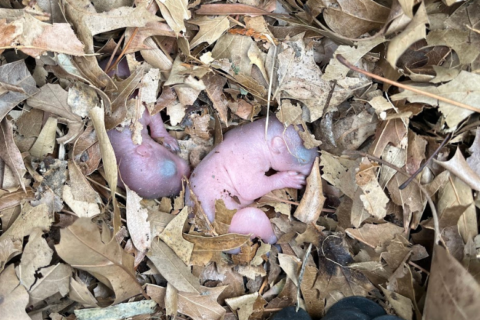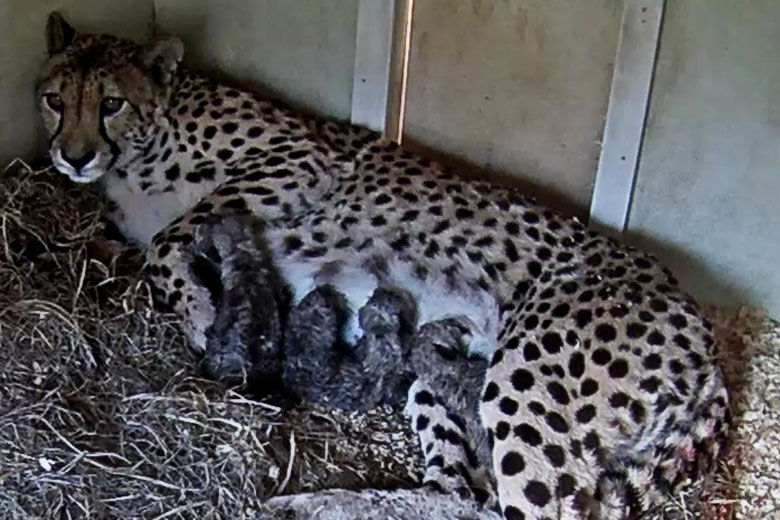
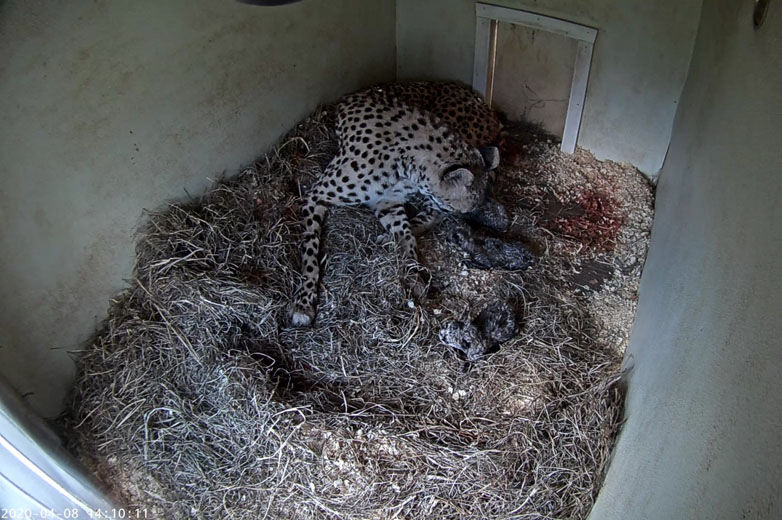
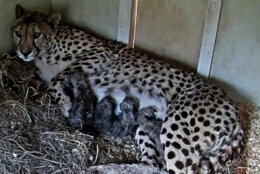
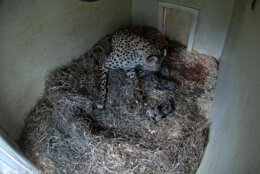
If you’ve worked your way through Tiger King and need some positive exotic cat news: A cheetah at a Virginia Smithsonian facility just became a first-time mom.
Echo, a 5-year-old female cheetah at the Smithsonian’s Conservation Biology Institute, or SCBI, in Front Royal, started having contractions and birthed her first cub shortly after 11 a.m. on Wednesday. Other cubs soon followed, and the new mom and her litter are bonding without interference in multiple dens. It may be some time before keepers can determine the cubs’ sexes.
“It’s thrilling and humbling to witness something as special as an animal birth,” Steve Monfort, the institute’s director, said in a statement.
Smithsonian staff are closely monitoring Echo and her cubs though a webcam.
Although Echo is a first-time mom, SCBI staff are confident about her maternal instincts and abilities.
“She was raised by her own mother without human intervention, so there’s a good chance Echo has learned cheetah parenting behaviors from the best teacher — her mother,” biologist Adrienne Crosier said in a statement.
The sire of the cubs is 4-year-old Scott. He and Echo were paired and bred in January. And in late February, veterinarians confirmed that Echo was pregnant.
Since 2007, 14 litters of cheetah cubs have been born at SCBI.
The institute is part of the Cheetah Breeding Center Coalition, a group of 10 cheetah breeding centers in the U.S. The coalition’s mission is to create and maintain a sustainable North American cheetah population under human care.
Cheetahs are considered vulnerable, according to the International Union for Conservation of Nature, which compiles a list of endangered species.
Echo’s cubs are a significant addition to the Association of Zoos and Aquariums’ Species Survival Plan for Cheetahs, as each individual contributes to this program, an SCBI news release said.
“I’m eager to watch the newborn cubs in their early days. During this extremely tumultuous and isolating time, we want the new cheetah cam and all our live animal webcams to provide much needed moments of relief and inspiration from our natural world,” Monfort said.
Due to the COVID-19 outbreak, the Smithsonian’s National Zoo and Conservation Biology Institute is temporarily closed to the public. However, animal keepers and veterinary staff remain working to provide care for the animals.
Watch Echo giving birth below. (Editor’s note: The content of the video may be disturbing to some viewers)




